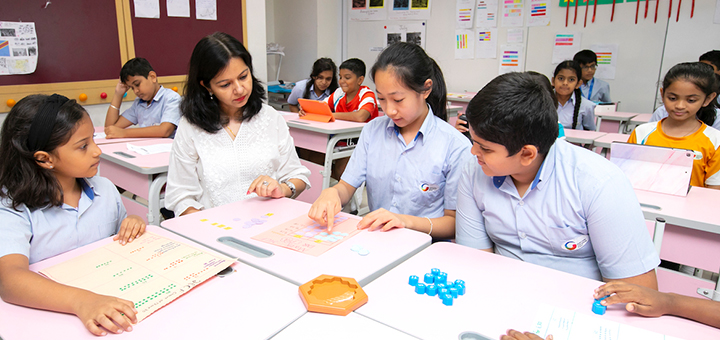Try these 10 effective study tips and techniques this year.
BY ADMIN PUBLISHED November 30, 2023, UPDATED December 12, 2023
The time for studying between school and other commitments can be difficult at times. Study sessions are important for good and successful preparation. In several instances, students lose track of time and indulge in study sessions that do not offer them optimal results. Delhi Public School Ghaziabad (DPSG) is dedicated to educational excellence and guides students to excel in studies and co-curricular. The school is on a mission to develop personalities enriched with academic knowledge and essential life skills.
In this comprehensive guide, we have penned the 10 effective learning techniques for students for successful studying. These tips can help students be on the right path to score higher and achieve greater heights in their academics.
Also Read: How To Enhance Student Learning Engagements
Ten Effective Techniques to Improve Daily Studying
Many techniques for studying are recommended by various people. Here is the most thoughtfully created set of techniques that can surely help students remain abreast when it comes to studying and acquiring knowledge.
1. Set a Schedule
The main principle of effective study preparation is to make a clear and organised schedule. A deliberate and purposeful strategy for scheduling study sessions should be made. The study planning should be based on the subject and the difficulty level of the subject that the students are learning in the class. It is recommended that the students should go through each subject every week.
2. Study at Your Own Pace
Each student has their own speed and style of learning. Some students understand a specific subject easily, but that very subject can be difficult to understand by some other students. This is why all the students should study in their respective rhythm. There is no universal speed or time for the completion of specific subjects. Through the process of trial and error, discover the best pace. It is important to know that a slower study pace may require additional time devoted to academic work.
3. Take the Right Amount of Rest
An organised study plan must have a specific time for rest. The right amount of sleep is important for brain function, as it helps to increase the pace of studying different subjects, in other words, increase daily productivity. Effective study planning will help to avoid situations like last-minute, sleep-deprived cramming before exams. Try to take 15 to 20 minutes of power naps in between studies and also engage the children in walking, stretching and other light exercise to keep their minds fresh.
4. Keep the Phone Away
Mobile Phones are the main source of distraction in recent times. The interruptions caused by phones can kill concentration and obstruct further progress in studies. To avoid this kind of circumstance, keep the cell phone away, silence the phone or activate the "do not disturb" mode at the start of the study sessions. The students can install some apps that temporarily block access to social media platforms during study hours. If temptation persists, power off the device until the study session ends.
5. Relax
Stress is a very common thing among youngsters today. It can damage the learning process and the children cannot retain more information in their brain. To eliminate the stress and increase productivity, the children must follow some stress-relief ways like taking deep breaths, pre-listing their everyday tasks, and doing light exercises.
6. Highlight Key Concepts
Active engagement with the material is vital to effective studying. Highlighting essential information during reading can help children maintain focus. The teaching faculty and the curriculum of DPSG schools help the children to grasp every subject easily with a focus on key concepts important for exams. This practice further helps in marking important details and makes review sessions more efficient.
7. Summarise Important Details
Summarisation is a powerful method for children to understand important and huge parts of the subject. Writing out a summary in the own words helps in processing and remembering the information. The students must organise the summary in key points, paragraphs or outlines.
8. Improve Recall with Association
Creating word puzzles or mental images, visualising vivid experiences related to the topic, making up rhymes, making mnemonic phrases using initial letters, and using mind maps to show connections between concepts are all examples of creative strategies. This helps to retain the memory easily. Another useful strategy is to process information by breaking it down into smaller bits of information.
9. Making of Study Sheet
A brief study sheet that summarises important notes on one page might be a useful tool. Reading aloud and going over it again helps to remember important parts of the subject.
Memorisation is helped by the formatting and colour-coding used in the creation of the study sheet. Study sheets can be carried around like flashcards for fast review.
10. Revision of Notes at Home
The children must have the habit of taking notes at school and revising them when they get back home. They should complete the incomplete notes by taking the help of other students in the class. If the student continues to do this process everyday then, they don’t have to deal with all the subjects at a time.
Conclusion
Delhi Public School Ghaziabad Society always focuses on convenient learning methods for the students. The school uses different studying techniques to help students study at their own pace. They give priority to the mental peace of our students.




